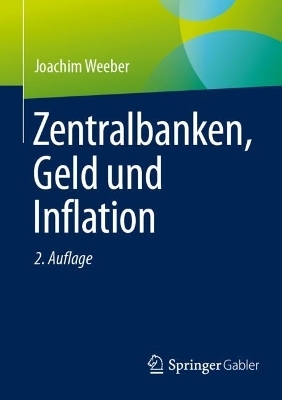
Crisis Cycle
Challenges, Evolution, and Future of the Euro
Seiten
2025
Princeton University Press (Verlag)
978-0-691-27160-6 (ISBN)
Princeton University Press (Verlag)
978-0-691-27160-6 (ISBN)
- Noch nicht erschienen (ca. Mai 2025)
- Versandkostenfrei
- Auch auf Rechnung
- Artikel merken
How the euro survived a series of crises, and how to make it more resilient
The euro has survived crises unimagined at its founding: the financial meltdown of 2007–2009, the sovereign debt crisis of 2010–2012, the pandemic, and the Russian invasion of Ukraine. The European Central Bank fought these crises with dramatic policy innovations, buying up vast amounts of debt, and providing large loans to banks. But now everyone expects the ECB to intervene routinely, and the euro is more fragile as a result. Crisis Cycle recounts this history and offers recommendations for restoring a durable monetary union.
Monetary and fiscal policy are intertwined, especially in a currency union like the eurozone. Member states can be tempted to borrow and spend too much, and then count on the ECB to rescue them by printing money to buy their bonds. To avoid these disincentives, the ECB was founded with a narrow mandate: use interest rates to pursue price stability, and don’t buy sovereign debt. Debt and deficit rules would keep countries from getting into trouble.
The ECB’s emergency innovations brought back these disincentives. How can the EU avoid larger and larger bailouts? The authors argue that Europe needs a a joint fiscal institution that can provide temporary help to sovereigns, a resolution mechanism so sovereign default is a motivating possibility, and bank reform that ensures sovereign default will not bring down the financial system. This timely book shows how to restore the euro’s ambitious and effective founding framework. The unique group of authors combine extensive policy experience and authoritative academic credentials.
The euro has survived crises unimagined at its founding: the financial meltdown of 2007–2009, the sovereign debt crisis of 2010–2012, the pandemic, and the Russian invasion of Ukraine. The European Central Bank fought these crises with dramatic policy innovations, buying up vast amounts of debt, and providing large loans to banks. But now everyone expects the ECB to intervene routinely, and the euro is more fragile as a result. Crisis Cycle recounts this history and offers recommendations for restoring a durable monetary union.
Monetary and fiscal policy are intertwined, especially in a currency union like the eurozone. Member states can be tempted to borrow and spend too much, and then count on the ECB to rescue them by printing money to buy their bonds. To avoid these disincentives, the ECB was founded with a narrow mandate: use interest rates to pursue price stability, and don’t buy sovereign debt. Debt and deficit rules would keep countries from getting into trouble.
The ECB’s emergency innovations brought back these disincentives. How can the EU avoid larger and larger bailouts? The authors argue that Europe needs a a joint fiscal institution that can provide temporary help to sovereigns, a resolution mechanism so sovereign default is a motivating possibility, and bank reform that ensures sovereign default will not bring down the financial system. This timely book shows how to restore the euro’s ambitious and effective founding framework. The unique group of authors combine extensive policy experience and authoritative academic credentials.
John H. Cochrane is the Rose Marie and Jack Anderson Senior Fellow of the Hoover Institution at Stanford University. He is the author of The Fiscal Theory of the Price Level and Asset Pricing (both Princeton). Luis Garicano is professor of public policy at the London School of Economics. He served as a member of the European Parliament from 2019 to 2022. Klaus Masuch has worked at the European Central Bank from the start of the euro, first as head of the Monetary Policy Strategy Division from 2000 to 2006, then as head of the EU Countries Division from 2007 to 2013, and as principal adviser since 2014. (All views are the authors’ and are not endorsed by their employers or affiliated institutions.)
| Erscheint lt. Verlag | 20.5.2025 |
|---|---|
| Zusatzinfo | 10 b/w illus. 1 table. |
| Verlagsort | New Jersey |
| Sprache | englisch |
| Maße | 156 x 235 mm |
| Themenwelt | Sozialwissenschaften ► Politik / Verwaltung ► Staat / Verwaltung |
| Wirtschaft ► Betriebswirtschaft / Management ► Finanzierung | |
| Wirtschaft ► Volkswirtschaftslehre ► Finanzwissenschaft | |
| Wirtschaft ► Volkswirtschaftslehre ► Wirtschaftspolitik | |
| ISBN-10 | 0-691-27160-7 / 0691271607 |
| ISBN-13 | 978-0-691-27160-6 / 9780691271606 |
| Zustand | Neuware |
| Haben Sie eine Frage zum Produkt? |
Mehr entdecken
aus dem Bereich
aus dem Bereich
Organisationen steuern, Strukturen schaffen, Prozesse gestalten
Buch | Softcover (2024)
Rehm Verlag
CHF 53,20
Buch | Softcover (2024)
Springer Fachmedien Wiesbaden GmbH (Verlag)
CHF 41,95


